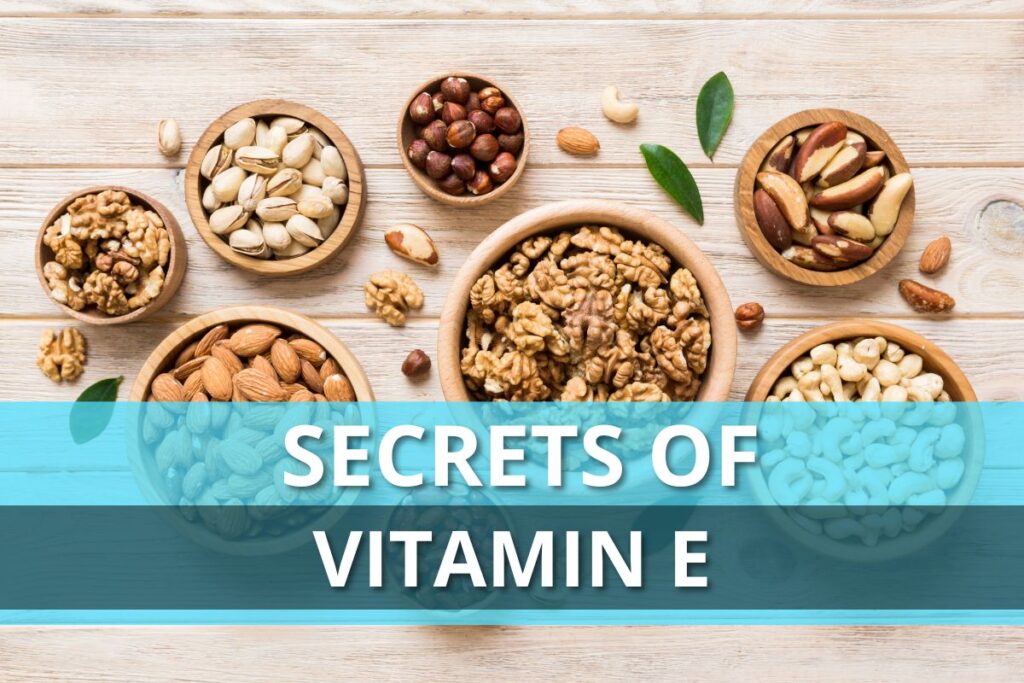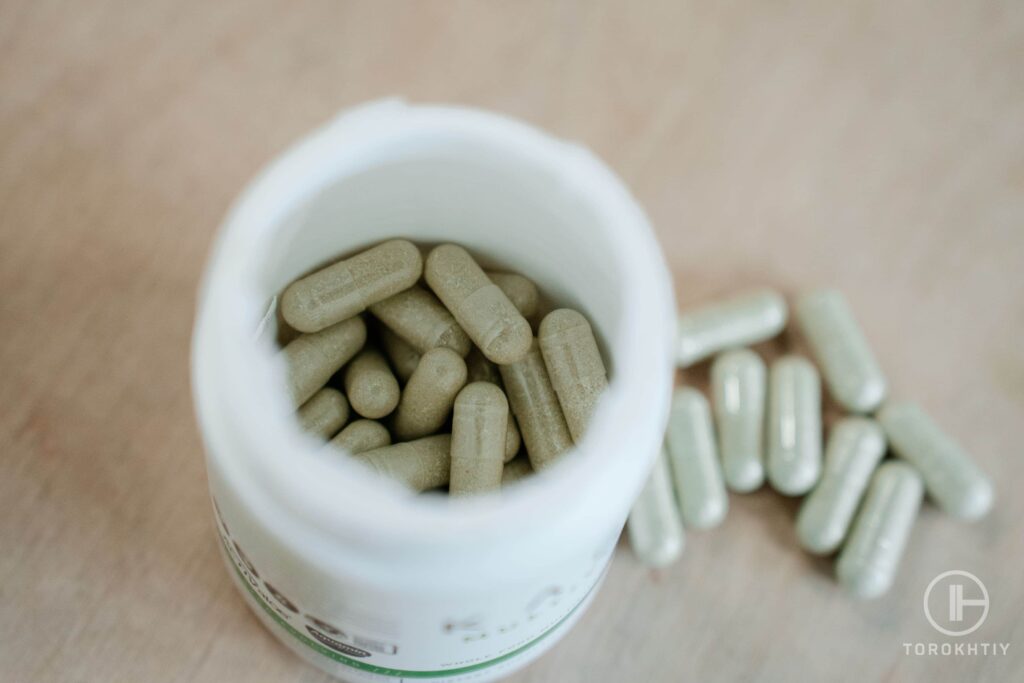Secrets of Vitamin E
Author:
Unlock your full potential by engaging with our experts and community! Have questions about your fitness journey or looking for expert advice on weightlifting techniques? Don’t hesitate — leave a comment below and Sergii Putsov will provide a personalized answer and insights to help you reach your goals.
Torokhtiy is reader-supported. Some links are affiliate links, and we may earn a commission at no extra cost to you. See our disclosure page for details.

Power loads are a powerful incentive for the growth and retention of muscle mass. But without providing the body with nutrients, including vitamins, muscle growth will be far from optimal. Quite often, we hear that certain nutrients can enhance muscle growth at the cellular level.
Vitamin E is a powerful antioxidant and a faithful helper of the immune system. In addition, Vitamin E is a precursor of steroid hormones, one of which is testosterone. For this reason, one can hear that Vitamin E is an anabolic.
But how does Vitamin E actually influence on muscle growth? Unfortunately, this question is poorly studied. Research on the high-dose of vitamins C and E intake along with strength training for 10 weeks showed that the cross-sectional area of the shoulder and thigh muscles increased approximately equally in the control and experimental groups. Besides, scientists made several conclusions:
- After strength training, the activity of muscle receptors responsible for growth was reduced in the group that took vitamins C and E.
- The intake of vitamins C and E in the additives did not influence on muscle growth over 10 weeks of strength training.
- The intake of vitamins C and E partially suppressed the strength indicators growth.

There were also no fantastic results during the research of elderly people and women.
You may like it:
Is it right to say that Vitamin E is useless for muscle growth?
The lack of any vitamin that takes part in the synthesis of anabolic hormones or causes the muscle mass growth at the cellular level can really negatively affect muscle growth. Vitamin E deficiency leads to damage to nerve and muscle cells, which in turn leads to muscle weakness. But if your diet is balanced and varied, the risk of developing hypovitaminosis is very low. Vitamin E deficiency is very rare in healthy people and almost always due to the presence of a disease in which the digestibility of fats is impaired.
Moreover, the fact that Vitamin E can theoretically take part in muscle growth does not mean at all that its intake in the additives will somehow enhance the effect. Research data actually shows that the additional intake of Vitamin E in the additives can completely negatively affect muscle growth and strength indicators.
Do not forget that Vitamin E is fat-soluble, which means that its excess is not excreted in the urine (unlike vitamin C and the B vitamins) and can have a toxic effect. Therefore, intake of this vitamin as an additive is not a good idea. First of all, one should pay attention to the diet. By the way, in our nutrition programs we carefully plan the diet so that you get the whole set of necessary vitamins and minerals in the right quantities.
Where is Vitamin E found? The daily intake of Vitamin E for adults is 15 mg, which is very simple to obtain without additives. The best sources of Vitamin E are vegetable oils, nuts, seeds, avocados and green leafy vegetables. Eat these foods every day and you will avoid Vitamin E deficiency.
TRAIN TOGETHER ‒ TRAIN RIGHT!
You might be interested in:
Why Trust Us?
With over 20 years in Olympic weightlifting, strength training, nutrition coaching, and general fitness our team does its best to provide the audience with ultimate support and meet the needs and requirements of advanced athletes and professional lifters, as well as people who strive to open new opportunities and develop their physical capabilities with us.
By trusting the recommendations of our certified experts in coaching, nutrition, and sports training programming, as well as scientific consultants, and physiotherapists, we provide you with thorough, well-considered, and scientifically proven content. All the information given in the articles concerning workout programming, separate exercises, and athletic performance, in general, is based on verified data.
The product testing process is described in more detail here.
Author: Sergii Putsov
Head of Sport Science, PhD
Best Results: Snatch – 165 kg,
C&J – 200 kg
Sergii Putsov, Ph.D., is a former professional weightlifter and National team member, achieving multiple medals in the 94 kg weight category at national competitions. With a Master’s degree in “Olympic & Professional Sport Training” and a Sport Science Ph.D. from the International Olympic Academy, Greece, Sergii now leads as the Head of Sport Science. He specializes in designing training programs, writing insightful blog articles, providing live commentary at international weightlifting events, and conducting educational seminars worldwide alongside Olympic weightlifting expert Oleksiy Torokhtiy.




Still have questions after reading our article? Unlock your full potential by engaging with our experts and community! Don’t hesitate — leave a comment below and Sergii Putsov will provide a personalized answer and insights to help you reach your goals.